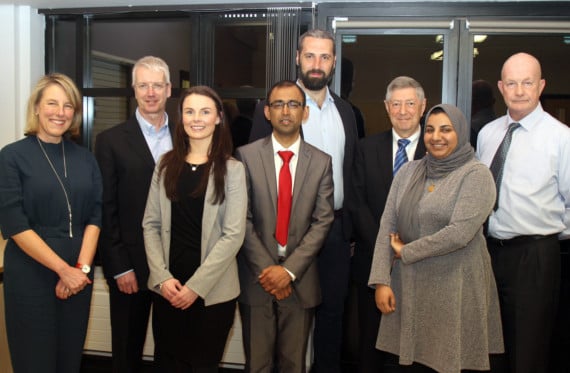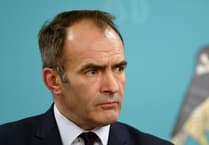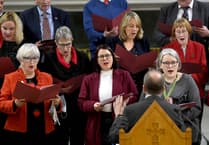All seven candidates for the Legislative Council who took part in a public hustings have supported the principle of reforming the role and how members are appointed.
A chance for the public to grill perspective MLCs was held in Onchan by the Liberal Vannin Party.
There are nine candidates for LegCo, four of whom will be chosen by MHKs today (Thursday) to serve a five-year term, having faced no public vote, bagging themselves a salary of at least £43,479.
The prospective lawmakers are Carole Lillywhite, Danielle Bell, Dr Michelle Haywood, Haafizah Hoosen, Peter Greenhill, Robert Mercer, Zahed Miah and sitting MLCs Kerry Sharpe and Bill Henderson. Mrs Lillywhite and Dr Haywood did not attend the hustings due to prior engagements.
Tim Crookall withdrew his nomination and says he will stand in next year’s general election in an attempt to regain his former Peel seat from either Infrastructure Minister Ray Harmer or Environment Minister Geoffrey Boot.
Whenever the Legislative Council is discussed, reform is often a topic of discussion and Monday night was no different as the panel of seven were asked whether LegCo was outdated and if they would support a publicly-elected second chamber.
Bill Henderson, who at the start of the night introduced himself as ’the continuity candidate’ said there had been a lot of changes over the last few years, such as LegCo only being selected by the House of Keys which he argued ’makes it more democratic, in a way’.
Mr Henderson, who doesn’t think the role is outdated, added that while he ’likes the sound of a LegCo election’ the Lisvane report into Tynwald recommended not changing the way LegCo is appointed.
Ms Hoosen said that LegCo needed to be more engaged with the public. She added: ’I think the role is needed and that’s why I’m standing.
’If we were electing LegCo, then we would need to look at the whole structure of Tynwald.’
Mr Greenhill said he was ’open to any ideas that would improve the system, including an election’. However, he said that LegCo has to ’be made up of a mix of people who are best suited at that time’.
Mr Miah said that, as the Keys are elected, they have the right to overrule LegCo and he agreed with that principle.
However, he said: ’Any changes must only be made if they would improve the system and make it better.’
Mrs Bell was the only candidate to tell the public that she thinks it is not appropriate for LegCo to be publicly-elected. She said that doing so would risk the supremacy of the Keys, with LegCo members potentially having a larger mandate than ministers and MHKs.
However, she did voice her support for LegCo, and candidates for it, to face the public more often.
Mr Mercer said that he would fully support a publicly- elected LegCo and would stand for it. He also believes that having two separate chambers and having them meet in Tynwald is sensible.
He added: ’As long as there is no confusion over the roles of LegCo and the House of Keys, then the vote issue goes away.’ He said that the role of LegCo to challenge the government creates a ’healthy democracy’.
Mrs Sharpe said that LegCo is ’like a surveyor’, checking over a house before someone buys it but recognises why it ’may not seem democratic’.
She suggested that instead of an election, LegCo could be selected by way of an ’interview panel’ to ensure a wide range of people were selected.
However, the responses were not universally popular with the members of the public who attended. One man said: ’The rest of us have managed to elect MHKs, why aren’t we trusted to vote in the upper chamber?
’There is no risk of the Keys not overruling LegCo if it chooses to as it will always have many more members.’
Candidates also faced questions on pensions, positive discrimination and why they weren’t standing for the House of Keys. For the latter, all candidates said their skills are better suited to LegCo.
â?¢ The emoluments committee, which looked at politicians’ pay, recommended in January that MLCs’ basic pay should rise to £61,455.





Comments
This article has no comments yet. Be the first to leave a comment.